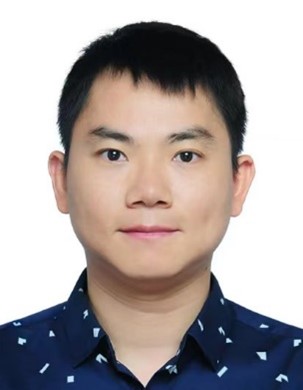 Invited Speaker
Invited Speaker

Metaverse and Smart Health
Yi Pan
Dean and Chair Professor Faculty of Computer Science and Control Engineering, Shenzhen Institute of Advanced Technology Chinese Academy of Sciences, China
Regents’ Professor Emeritus Department of Computer Science Georgia State University, USA
Abstract:
In 2021, "Metaverse" has become a hot word of the year among the world. Because it is a new concept, different people have different concepts of the Metaverse in their minds. Some people even say that the Metaverse is a lie and pseudoscience. However, I think that since so many companies and experts are pursuing this concept, it must have value, so we must first understand and study it before making a decision to accept, deny, or modify and improve it. As the Metaverse continues to mature, some basic consensus is being reached. This talk will introduce the basic concept, three stages, development history, supporting technology, eight basic features, five elements, and six characteristics of the Metaverse, and explain the applications and implementation challenges of the Metaverse in biomedical scenarios, including medical training, medical surgery, electronic health records/prescriptions, game therapy, digital medicine, disease diagnosis, virtual reality therapy, remote consultation, biological experiments, and pharmaceuticals using Metaverse.
Biography:
Dr. Yi Pan is currently a Chair Professor and the Dean of College of Computer Science and Control Engineering at Shenzhen Institute of Advanced Technology, Chinese Academy of Sciences, China and a Regents’ Professor Emeritus at Georgia State University, USA. He served as Chair of Computer Science Department at Georgia State University from 2005 to 2020. He has also served as an Interim Associate Dean and Chair of Biology Department during 2013-2017. Dr. Pan joined Georgia State University in 2000, was promoted to full professor in 2004, named a Distinguished University Professor in 2013 and designated a Regents' Professor (the highest recognition given to a faculty member by the University System of Georgia) in 2015.
Dr. Yi Pan is Fellow of American Institute for Medical and Biological Engineering, Foreign Member of Russian Academy of Engineering, Foreign Member of Ukrainian Academy of Engineering Science, Member of European Academy of Sciences and Arts, Member of European Academy of Natural Sciences, Fellow of the Royal Society for Public Health, Fellow of the Institute of Engineering and Technology, and Fellow of the Japan Society for the Promotion of Science.
Dr. Pan received his B.Eng. and M.Eng. degrees in computer engineering from Tsinghua University, China, in 1982 and 1984, respectively, and his Ph.D. degree in computer science from the University of Pittsburgh, USA, in 1991.
Dr. Pan has published more than 450 papers including over 250 journal papers with more than 100 papers published in IEEE/ACM Transactions/Journals. In addition, he has edited/authored 43 books. His work has been cited more than 20000 times based on Google Scholar and his current h-index is 90. Dr. Pan is currently serving as Editor-in-Chief of Big Data Mining and Analytics (a top 3% journal), Associate Editor-in-Chief of Journal of Computer Science and Technology (JCST), and Chinese Journal of Electronics (CJE). Dr. Pan has served as an editor-in-chief or editorial board member for 20 journals including 7 IEEE Transactions.

Thoughts and Practices on the Commercial
Implementation of Intelligent Driving
Liang Fenghua
Vice GM, Chang-an Auto,Ltd., Chang-an Automobile Intelligent Research Institute, China
GM, Chongqing Changxian Intelligent Technology Co. Ltd, China.
Abstract:
Intelligent driving helps the new automotive industry achieve a leap in value from assisting humans to liberating them to pleasing them, making it the key to winning the competition in the second half of the new automotive era. Currently, opportunities and challenges coexist for intelligent driving. In the short term, the market will still be in the stage of refining L2+ scenarios, facing difficulties in dealing with long-tail scenarios and balancing experience and safety. Given the opportunities and challenges, the ultimate development of intelligent driving requires a full modal and full-field AI big model, triggering changes in the model architecture and development paradigm of intelligent driving. In terms of commercial practice, Changan Automobile has constructed the SDA architecture, achieved hardware-software decoupling and soft-soft separation, introduced algorithms such as BEV model and AI PNC, and established systems such as vehicle-cloud integration and automatic annotation production lines. It has also created products such as NID3.0, APA7.0, and urban self-learning NOA, supporting the realization of the ultimate A-B full-scenario continuous experience.
Biography:
Liang Fenghua, professor of engineering and the deputy general manager of Changan Automobile Intelligent Research Institute and the general manager of Chongqing Changxian Intelligent Technology Co. Ltd. He is responsible for the technology planning and development of Changan Automobile’s intelligent driving technologies. He has headed in developing 16 key technologies, including pedestrian automatic emergency braking, integrated adaptive cruise control, remote valet parking and remote intelligent parking, which were first applied on mass production among Chinese-brand cars. The team under his leadership has made 14 landmark achievements, which are ahead of automobile industry, like the national first long-distance (2,000 km) intelligent driving test and the Guinness World Records of 55 autonomous car parade.
He is the winner of the first prize of Chongqing Science and Technology Progress Award, the first prize of Anhui Science and Technology Progress Award, the first prize of China Automobile Industry Science and Technology Award, the first prize of the Science and Technology Progress Award of China South Industries Group Co., Ltd., the second prize of China National Defense Science and Technology Industrial Enterprise Management Innovation Achievement, and “Talents of Chongqing” etc. He has played a leading role in formulating the national standard of “Taxonomy of Driving Automation for Vehicles”, and authored 5 research papers and 36 national invention patents.

Enhanced Remote Valet Parking
Ping Liu
Associate Professor of College of Automation, Chongqing University of Posts and Telecommunications, China Associate Director of Institute of Ecological Safety, Chongqing, China
Abstract:
With the rapid development of intelligent cars, the autonomous valet parking technique has significant application value in intelligent cyber-physical transportation systems. The 5G-V2X-based off-site dispatching enhanced remote automotive valet parking (E-AVP) is the crystallization of the deep integration of network intelligence and single-vehicle intelligence, and is an important way to achieve L4 level autonomous driving. The construction of an enhanced remote valet parking system is a complex systems engineering. This talk will introduce the basic concept, system architecture, electrical architecture, operating system and the corresponding supporting technologies for the construction of an E-AVP system. The presentation will cover interactive decision-making methods, parking guidance ways, parking trajectory planning strategies, and blockchain communication algorithms of the E-AVP system in detail. Moreover, significant demonstration results will be shared with all.
Biography:
Dr. Ping Liu is currently an associate professor of College of Automation, Chongqing University of Posts and Telecommunications, Chongqing, China. And he is the associate director of Institute of Ecological Safety, Chongqing University of Posts and Telecommunications. He is a member of the Adaptive Dynamic Programming and Reinforcement Learning (ADPRL) professional committee of the Chinese Association of Automation.
Dr. Liu received his B.Eng. degree in automation from the North China Electric Power University, China, in 2012 and his Ph.D. degree in control science & engineering from the Zhejiang University, China, in 2017. His main research contributions have been in a wide range of areas of engineering, including: unmanned driving, trajectory planning, optimization methods, planning and control of unmanned vehicles, computer vision, process control. He has published more than 30 journal papers and 6 invention patents. He has conducted or taken part in many national and province funding projects, including: National key R&D program, National Natural Science Foundation of China, Chongqing Natural Science Foundation Project, etc. Dr. Liu now serves as a local chair for the 19th International Conference on Future Information Technology (FutureTech2024).




